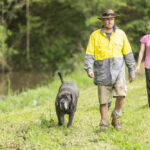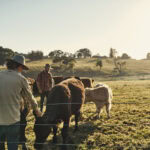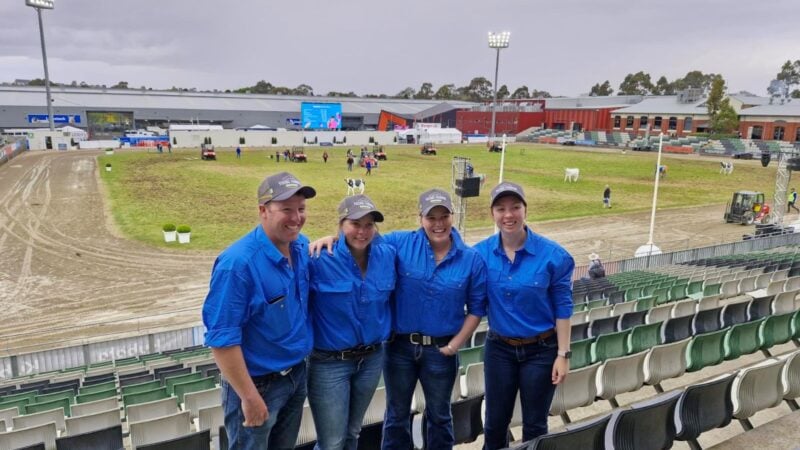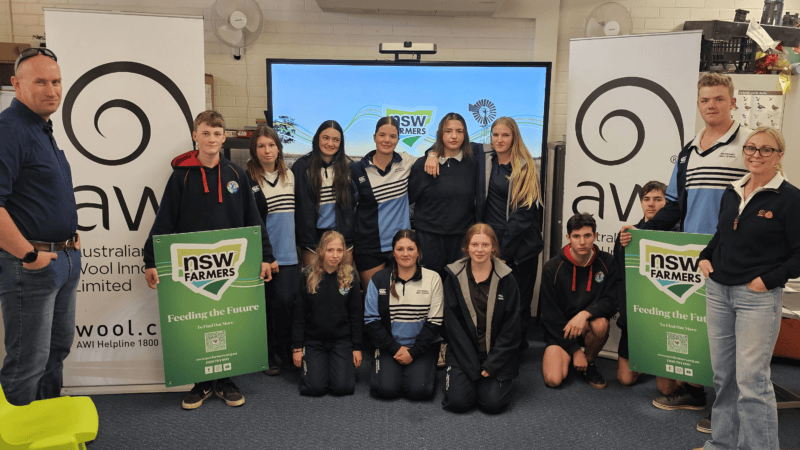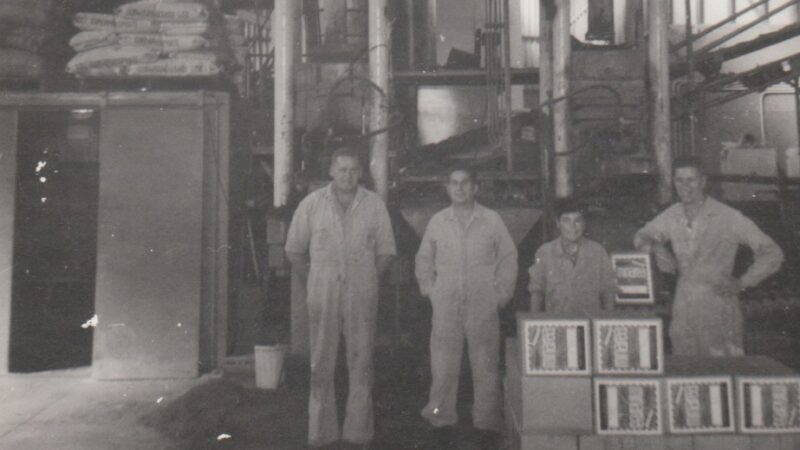With social distancing becoming the new norm, selling livestock online has become increasingly popular. Is…
The online revolution during COVID
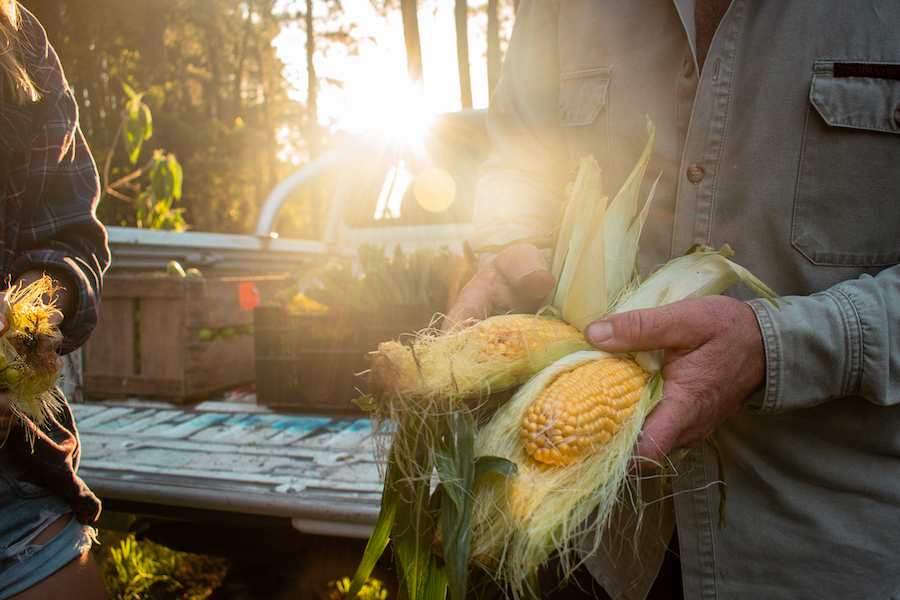
Regional NSW has been calling out for improved internet and connectivity for more than a decade, and this year’s global pandemic inadvertently became the turning point that the agricultural industry needed to make it a national priority. Now there’s an online revolution gaining momentum by the day.

“I think it’s an opportunity,” says Professor Robin Stonecash, Dean of the School of Business and Tourism at Southern Cross University. “Everything on the farm these days needs good technology, from self-guided tractors to drones to make sure animals are not in strife and to monitor soil, temperature and water usage. We need really good internet in regional areas and Australia should be able to supply that to its farmers.”
While the industry continues to wait on promises from the government, farmers and agribusinesses have quickly pivoted to online channels to keep their businesses going. Operations that were once purely wholesale or part of retail supply chains are now supplying direct to consumers, with better margins, and there’s every likelihood many new business models forged during this crisis will continue on.
“Right now farmers are building up trust with people, which means the farmer gets more money directly and they don’t have to go through a third party,” explains Stonecash. “I do think there’s going to be an increase in direct-to-consumer sales in the future and I think it’s a way for farmers to capture more of the value in the value chain.”
Here are three NSW farming businesses that have pivoted during the online revolution…
A natural evolution Fanelli Organics
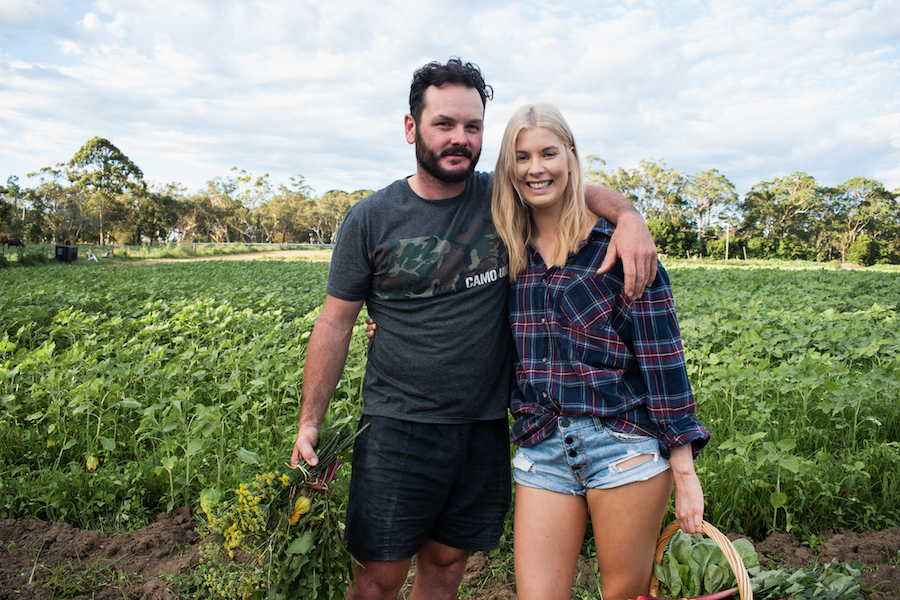
Eden Fanelli from Fanelli Organics is a fourth-generation farmer who also happens to be a qualified personal trainer. His keen understanding of health and nutrition meant that when he bought the family farm from his parents 10 years ago he knew he wanted to grow organic produce only.
“Before COVID-19 the business model was a mix. We had wholesale – bulk things like zucchinis and collard cabbages – and we were at Carriageworks Farmers Market and a few others like it around Sydney and the Central Coast. And we did a lot of retail as well,” he explains. “But in early March, we could see that things were going to change. We still had a lot of customers that wanted to buy our local and seasonal produce, so we decided to give the produce box and home delivery system a go.”
While the business already had Facebook and Instagram accounts, Eden and his girlfriend Louise realised they needed someone to help them build an e-commerce website quickly. They used online marketplace Airtasker and had the website up and running in a week.
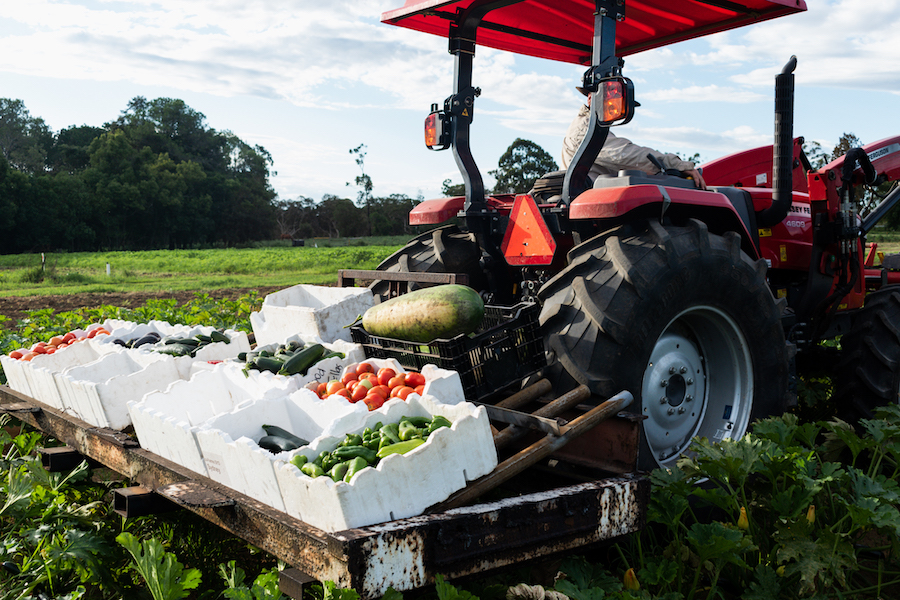
“We partnered with a few other farmers that have organic eggs and also grass-fed meat, and we started offering boxes and hampers online that we deliver direct to homes. We were really blown away by how quickly people jumped onto it,” Fanelli says.
Despite the stress of pivoting to a brand new business model virtually overnight and the uncertainties of the future, Fanelli believes there has been some positives. “People are used to just going to a supermarket and always being able to buy an orange or an avocado. Whereas in the last few months, I think people are understanding that you can’t get everything all the time. And I think that’s a really good thing.”
Fanelli has discovered that there is less wastage and slightly higher margins with the online model and believes it is definitely something they will continue with into the future. “If people can still go to a farmers market and have that social aspect, but pre-order the majority of their stuff, it’s going to help everyone.”
“Everyone we know has adapted. That’s farming in a nutshell. We’re always adapting to the weather. We’re always adapting to the seasons. So I guess going online is just another variable we have to deal with.”
Virtual reality for Norco Primex Field Days
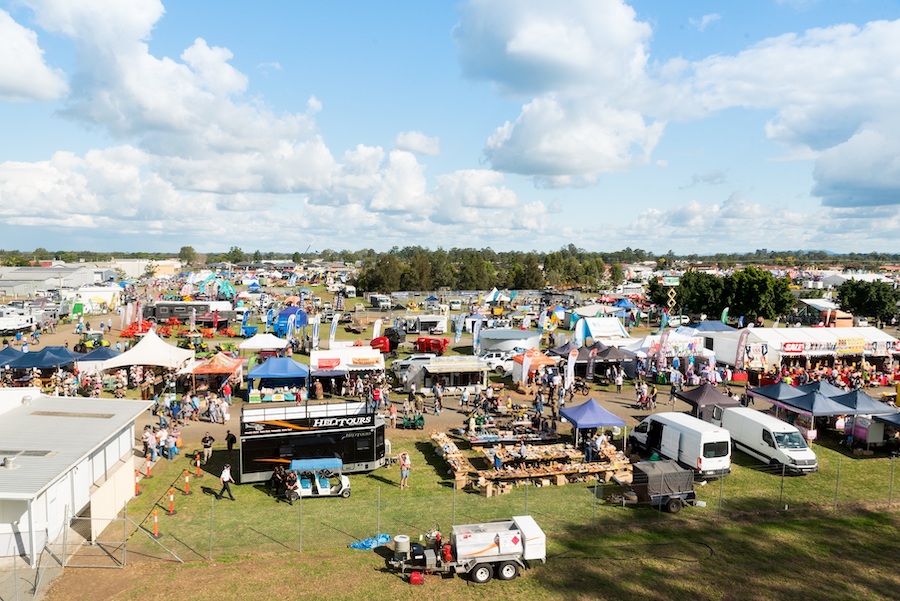
In 2017 Bruce Wright, Director of Norco Primex Field Days, took full ownership of the business that his father established in 1985. He knew it could no longer be ‘business as usual’ and from that time was always destined to be a part of the online revolution.
“We’ve been rebuilding the event and repositioning it to address the evolution of field days as we see it. Our strategy has been to make sure the event remains relevant and services the needs of the farmers throughout the year.”
This meant that when COVID-19 hit the business was already looking for ways to service their exhibitors better, and had found ‘Map Your Show’, an online event and conference management system that was already being used by field days in the USA.
“Earlier in the year we were in the process of fast tracking a range of additional features within the system in case there was a need for a virtual event to happen. So everything sort of came together when we had to cancel our May expo to allow us to launch virtually,” explains Wright.
What launched on the May 11 was an eight week event that is Australia’s first ever virtual field day exhibition. While the physical event that attracts 25,000 people to Casino each year has been postponed until September 10-12, the virtual expo allowed farmers to take advantage of the federal government’s $150,000 depreciation write-off that must be used before 30 June 2020.
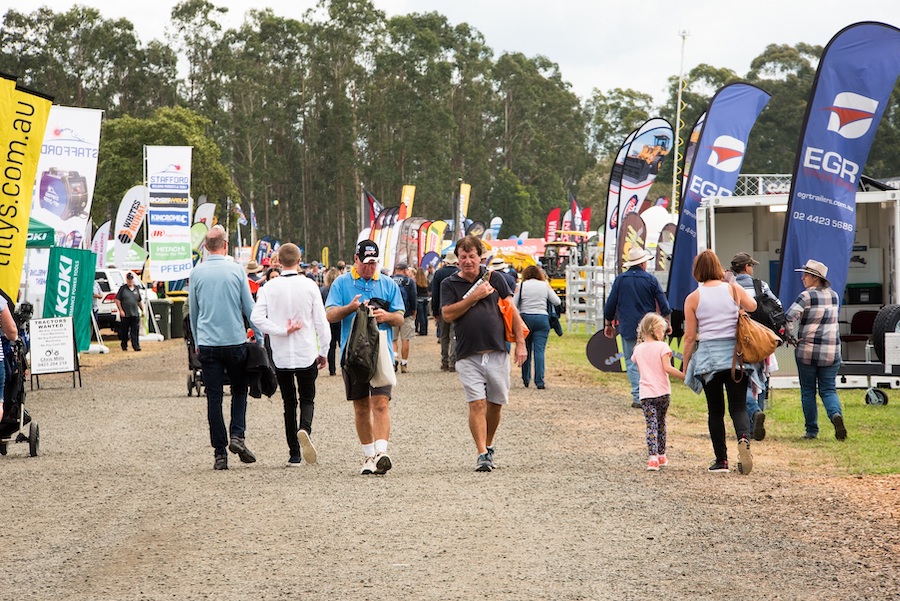
“For a range of major global brands that have launched new technology in Europe and the USA, the logistics wouldn’t normally not allow them to launch here until machinery was shipped,” notes Wright. “It means that Australia is not isolated anymore from an overseas launch, and that farmers can see that what those innovations are today rather than wait for them to roll out over the next six to 12 months.”
More than 300 exhibitors signed up for the virtual expo and farmers are able to see first-hand demonstrations, ask questions and attend webinars as they would at the physical event. While Wright believes COVID-19 has fast-tracked the adoption of online technologies in the farming community, he doesn’t believe in-person field days will disappear anytime soon.
“Farmers will always want to kick the tyre – to see and touch the technology. Nothing is going to take away from the social or business networking aspect of a physical event. And that’s why the physical event will always be primary, but the virtual event will be a supporting mechanism prior to, during and following a physical event. That’s how we will be structuring it.”
West Walla Farm’s virtual farm tours
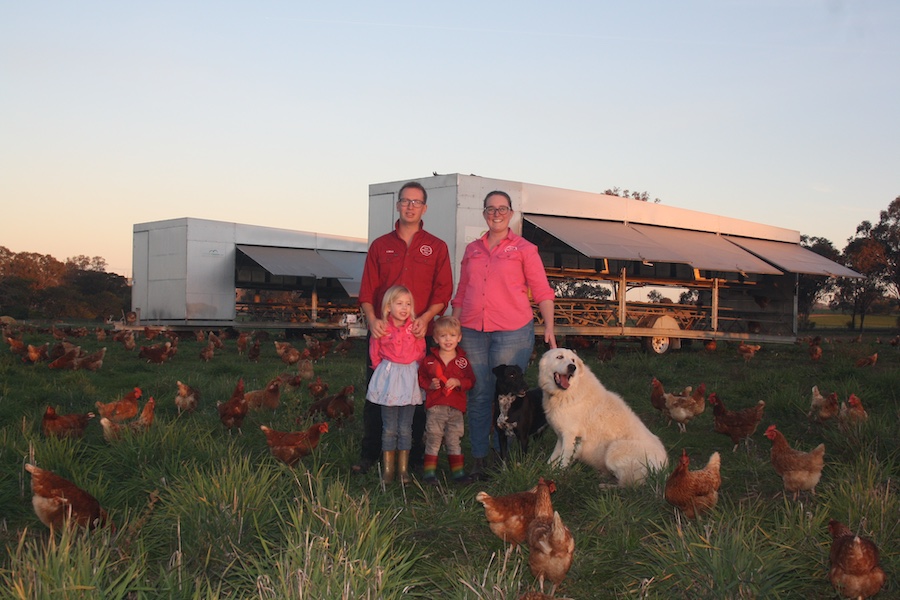
Tobias Lehmann and his wife Amy are typical ‘tree changers’ – Sydneysiders who moved to the country in 2016 to try their hand at farming at West Walla Farm. They tried eggs, pigs and snails, and found that free-range egg production was their most viable option.
Complementary to the eggs, they also make home-crafted mayonnaises and aioli, and before COVID-19 restrictions were put in place they supplied their eggs and finished products to caterers, cafes and delis across NSW, and were regulars at a range of farmers’ markets. Their ‘tree change’ was becoming more permanent with each successful sale.
“But when COVID-19 hit we lost all the cafe and restaurant business, almost instantaneously,” laments Tobias Lehmann. “We also lost both our most profitable farmers’ markets, which left us with an awful lot of eggs to sell.”
The Lehmanns had long encouraged customers at the farmers’ markets to join their email and text messaging lists to ensure they didn’t miss out around peak times like Easter and Christmas, and this paid dividends when other revenue sources dried up.
“We used that information to communicate with our customers and direct them to our website. My wife spent a week setting up a payment ordering system that allows people to subscribe for egg pick-ups every two weeks, or make one-off purchases,” explains Lehmann. “Since that point we’ve managed to sell all of the eggs we produce, which was an outcome we never thought we’d achieve when we first moved online.”
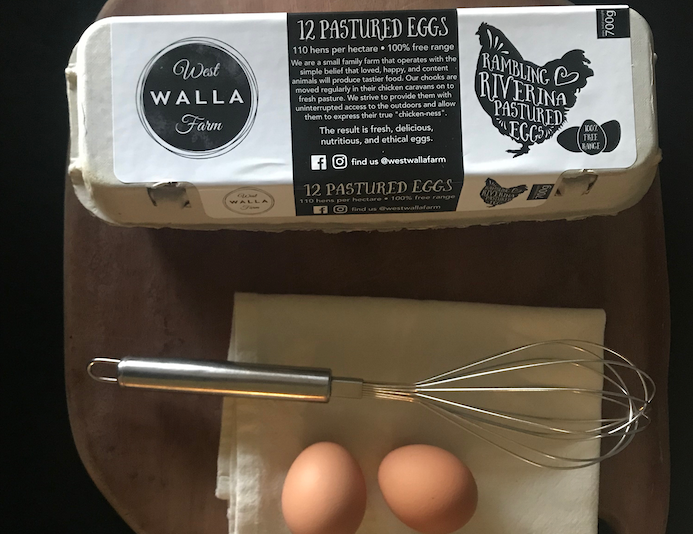
Utilising their existing socials channels (Facebook and Instagram), the Lehmanns decided to offer another value-add to their customers – a free virtual farm tour with a live Q&A. And that’s how they officially joined the online revolution.
“I certainly believe we have been successful in selling not just some, but all, of our eggs because of the connection that we have developed with our customers, where they know the story behind the food and the provenance of it.”
“People are always asking us questions about our eggs and we thought this would be a very good time to invite them into our home. It was quite remarkable, because I’ve had customers the week afterwards thanking us for doing it, saying ‘what a wonderful thing you did. Thank you so much for doing this for us.’ They saw it as us giving a gift to them, which was really quite lovely.”



